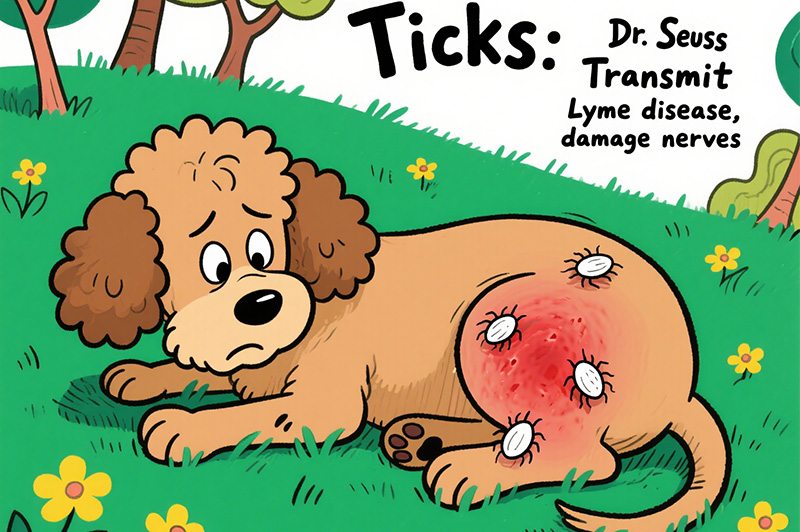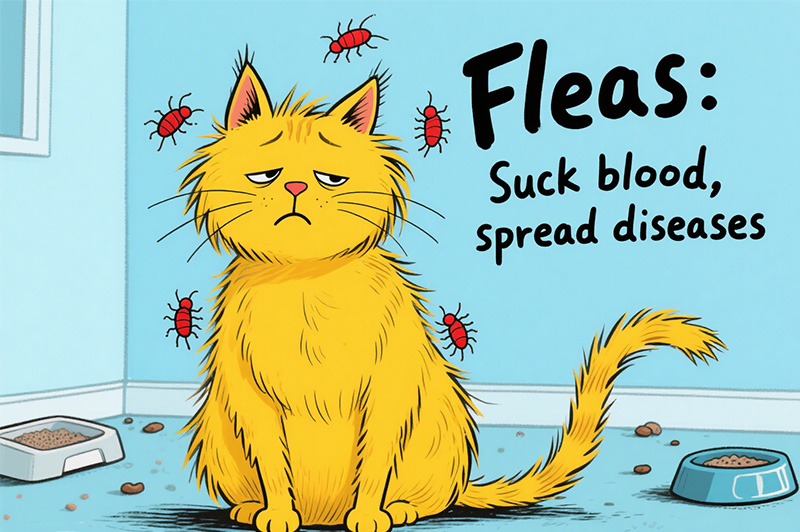

Jan. 04, 2026
Roundworms, whipworms, hookworms, tapeworms, and heartworms, the most common types of worms in dogs and cats, cause many health issues, including:
1.Fatigue. Worms consume nutrients your pet needs to run and play. Your pet may seem tired or lethargic if it has worms.
2.Weight Loss. Without enough nutrients to nourish its body, your pet may soon lose weight.
3.Digestive Problems. Worms can cause bloating, vomiting, and diarrhea.

4.Dehydration. Your cat or dog may become dehydrated due to diarrhea. Signs of dehydration include dark urine, less frequent urination, sunken eyes, dry nose, weakness, sticky gums, and stringy saliva. Skin can also become less elastic if your pet is dehydrated.
5.Trouble Breathing. A severe worm infestation can affect your pet’s ability to breathe and may cause coughing.
6.Coat Problems. Your pet’s coat may look dull or dry if it has worms. Hair loss and increased shedding can also be signs of worms.
7.Anemia. Hookworms and whipworms feed on your pet’s blood increasing its risk for anemia. Anemia signs and symptoms include pale gums, weakness, fatigue, shortness of breath, vomiting, and rapid heart rate. Without treatment, anemia can lead to death.

8.Swollen Abdomen. A large number of worms may make your pet’s abdomen swell.
9.Damage to the Organs. Heartworms can damage your pet’s lungs, heart, and other organs. Pets can die if the damage is severe.
Worms, or parts of them, may be seen in your pet’s poop, although that’s not always the case. If your pet develops any of the symptoms listed above, whether you see worms or not, make an appointment with the veterinarian. Your veterinarian can examine a poop sample under a microscope to determine if your pet has worms.